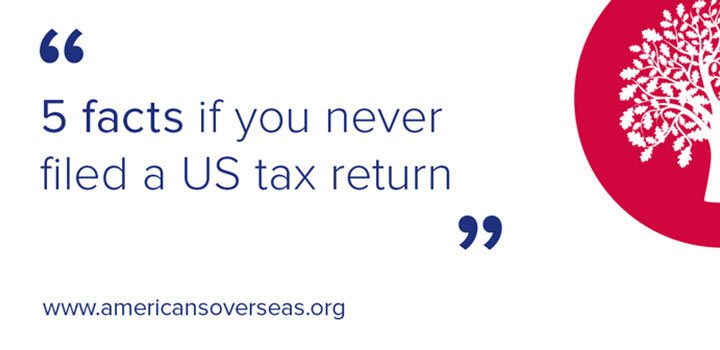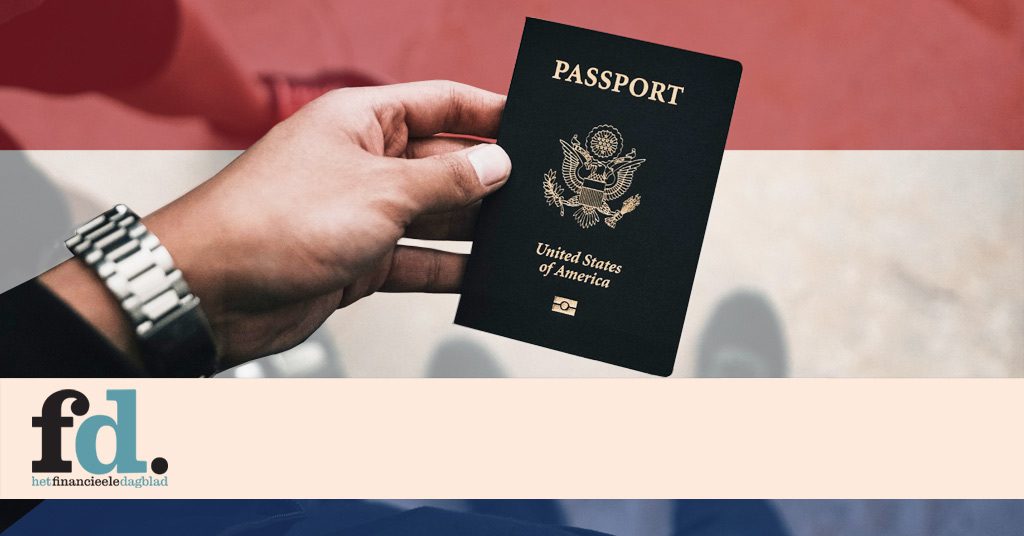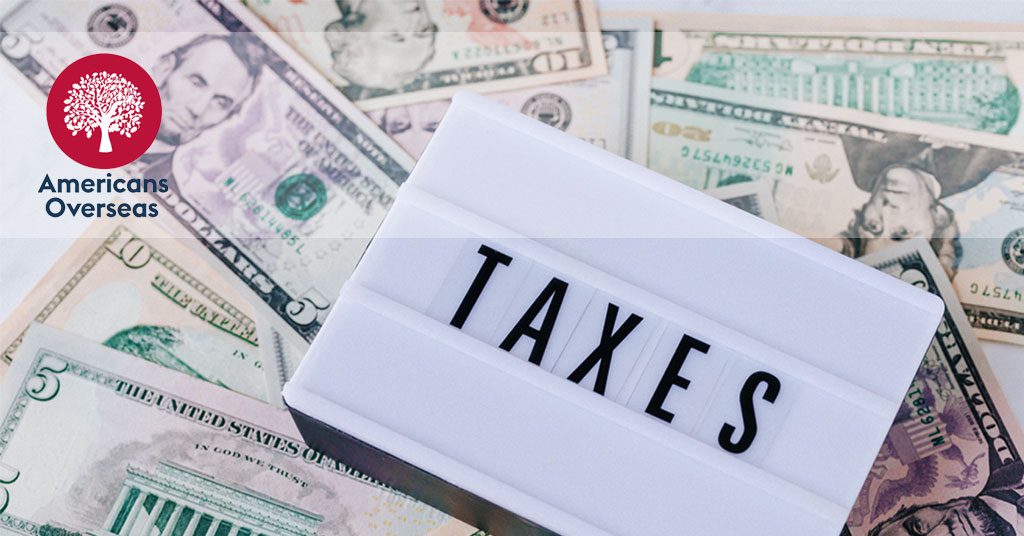
Washington Post: Supreme Court Decides How to Punish US Expats

The Washington Post reports that recent controversial rulings by the US Supreme Court on abortion, weapons, climate change, and other topics have polarized Americans. Another case on its docket will get intense scrutiny from millions of Americans living abroad.
US Tax and compliance rules
United States v. Alexandru Bittner concerns some of the tax and compliance requirements the US imposes on its expats. These restrictions may be so severe as to criminalize simply living outside the US effectively.
Declare FBAR
Alexandru Bittner is a businessman and a dual citizen of the US and Romania. He used to live and work in Romania and, naturally, had to open financial accounts there. What he didn’t know (many US expats don’t) is that he had to declare all these accounts every year on a form known as FBAR (Foreign Bank Account Report)
All parties in the case agree that Bittner’s failure to make timely and proper disclosures was “non-willful,” meaning unintentional. Even so, the penalties are stiff.
One appeals court assessed his fine at $50,000, or $10,000 for each of the five years in which the FBAR was omitted. Another court put the punishment at $2.72 million, or $10,000 for each account that should have been on each FBAR, each year.
Penalties for not complying with US tax
This question mark about penalties is one of many ambiguities about FBARs. But even FBARs are just the tip of the iceberg.
Americans abroad suffer a long list of indignities in trying to comply with US laws. Most of them don’t owe the IRS any actual tax because they usually pay at higher rates to their host countries and subtract those amounts from their American liabilities.
However, they are still required to spend a lot of time, anxiety, and money filling out confusing forms that ask for information that is frequently vague or unavailable.
PFICs
Some US expats, for example, find themselves owning mutual funds registered in their host country — employers sometimes put such investments into occupational retirement schemes by default.
To the IRS, these are PFICs, or “passive foreign investment companies”. The resulting paperwork is considered the most complex in the entire American tax code, and the taxation is tantamount to confiscation.
Depending on what an American expat does next, there’s more misery to come. If she marries a “foreigner” (the reason why many Americans move overseas in the first place), she may face nightmares about joint accounts, inheritance, and more, even before considering any children.
More punishment awaits those who own a foreign business or do pretty much anything interesting.
Foreign banks must report US persons
US expats may also struggle to open — or keep open — financial accounts abroad. Foreign financial institutions must report on “US persons” (citizens or Green Card holders) to the US. Rather than run the risk of American retaliation for errors and omissions, many financial institutions prefer to have no American customers at all. This particular problem is a consequence of the Foreign Account Tax Compliance Act (FATCA), which has upended the lives of many US expats.
Citizen Based Taxation
But the original reason is the peculiar American way of taxation: citizenship-based taxation (CBT). It means that a person’s passport or Green Card, not the place of residence, determines tax status and liability.
The unintended consequences are legion. One is to snare “accidental Americans” in the nets of the IRS and FinCEN. These are people who — usually because their parents happened to be in the US when they were born — have US citizenship but otherwise have no connection to America.
This (largely coincidental) intertwining of citizenship law and tax law over the decades has made the US unique. All countries want to crack down on tax cheats who hide money in offshore accounts — that’s why ever more governments are agreeing to share financial information.
However, the US is the only country that targets wealthy and sophisticated tax evaders residing domestically, hitting millions of expats with modest holdings and little knowledge.
An insurrection of legal action is now sprouting all around the world, a sign of the mounting despair.
- In the UK, a woman named Jenny Webster, American-born but British, has been taking the British authorities to court for sharing her financial information with the US, arguing that this amounts to violations of her data privacy.
- In the Netherlands, a court recently prohibited a local bank from closing the accounts of Accidental Americans in the country. The European Parliament sent a delegation to Washington, DC, to discuss the problems caused by FATCA.
However, all of these initiatives simply address the symptoms of citizenship-based taxes. Therefore, a different group of attorneys seeks to contest the constitutionality of CBT in general, at least as it exists today. They are now developing their case.
There are lots of reasons why people born in the US at some point find themselves living abroad. It shouldn’t be US government policy, even implicitly, to make such lives unnecessarily difficult. America must treat all its citizens equally, whether they live at home or overseas.
Alexandru Bittner shouldn’t be financially ruined just because he made unintentional errors while he lived abroad.
Americans Overseas can help
We, the founders of Americans Overseas, were born in the Netherlands and obtained our American nationality through our (American) mother. When we heard about this for the first time around 2013, we were in total disbelief (it can’t be true!), anger (how can they do this?), fear (am I going to get fined or pick up other problems?), and panic (what should I do?).
It is (unfortunately) true that there is an additional American tax levy. But there’s no information from the local government, and when approached, the consulate referred us to the IRS, and the IRS was impenetrable.
That’s why we started this initiative to help people from all over the world by providing proper information to avoid unnecessary panic and offering help free of obligation and free of charge. If needed, we have a network of affordable professionals (accountants) who can help you with your tax obligations.
If you have more questions about the US tax obligation you can contact us at Americans Overseas.
Contact us for more information
Source: The Washington Post
Frequently asked questions
Understanding the US tax system, the obligations, and all the additional terms can be difficult. Especially if one lives outside of America. Is your question not answered? Contact us.
-
Who is required to file taxes in the US?
U.S. citizens and resident aliens who live abroad are generally required to file a federal income tax return and pay taxes on their worldwide income.
Read more... about Who is required to file taxes in the US? -
Do US citizens living abroad still have to file taxes in the US?
Yes, US citizens are required to file taxes on their worldwide income, regardless of where they are living.
Read more... about Do US citizens living abroad still have to file taxes in the US? -
How can I cash my US check?
Received an American check? You can cash your check in the following ways: cash the check at your own bank, transfer to another person (endorsement), cash checks using an online service or cash the check by another bank.
Read more... about How can I cash my US check? -
Are there any special tax forms required for US citizens living abroad?
US citizens living abroad may be required to file Form 2555 and/or Form 1116 to claim the foreign-earned income exclusion.
Read more... about Are there any special tax forms required for US citizens living abroad? -
What is FBAR filing?
FBAR (Foreign Bank Account Report) filing is the requirement for certain U.S. individuals and entities to report their foreign financial accounts to the Financial Crimes Enforcement Network (FinCEN) of the U.S. Department of Treasury. The FBAR filing requirement applies to U.S. persons who have a financial interest in, or signature authority over, one or more foreign financial accounts if the aggregate value of those accounts exceeds $10,000 at any time during the calendar year.
Read more... about What is FBAR filing?





